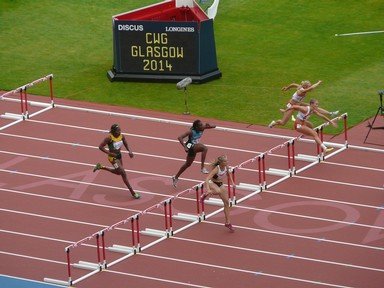Quiz Answer Key and Fun Facts
1. The mascot for the 1982 games was Matilda, a mechanical kangaroo.
2. The 1986 games, held in this city for the second time, featured schoolchildren running down the Royal Mile as part of the opening ceremony.
3. The opening ceremony for the 1990 games included a number of M‚ori performances.
4. In 1994, the opening ceremony included a display of precision horsemanship from the RCMP and an aerial performance from the Snowbirds.
5. In 1998, athletes could visit the recently-built Petronas Twin Towers during their free time.
6. The velodrome for the 2002 games proved to be a valuable asset to assist the development of British cycling.
7. The 2006 games were the largest sporting event held in the host city since the 1956 Olympics.
8. The mascot of the 2010 games was Shera, an anthropomorphic tiger whose name comes from a Hindi word used to refer to a lion or tiger.
9. The opening ceremony for the 2014 games was held in Celtic Park. The closing ceremony was in Hampden Park.
10. When this sun-drenched city hosted the 2018 games, Australia became the first country to hold them five times.
Source: Author
looney_tunes
This quiz was reviewed by FunTrivia editor
gtho4 before going online.
Any errors found in FunTrivia content are routinely corrected through our feedback system.
